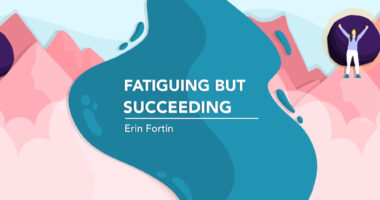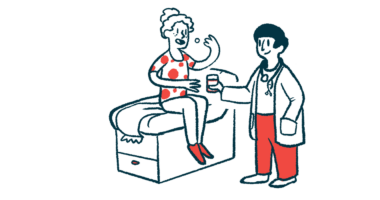Can a PNH patient work full time?
Working with a disability like mine brings challenges, concerns

One topic that’s often discussed among new paroxysmal nocturnal hemoglobinuria (PNH) patients is whether we can work full time. Since my diagnosis in 2019, I’ve struggled with deciding what to do about my career. And I still don’t know the right answer.
I put in the years and an extreme amount of effort to earn my bachelor’s degree in business management with a specialization in accounting, and I don’t want it to go to waste. But I also want to be realistic about my needs. My years in college (before my diagnosis) were some of the best years of my life, but they also took a toll on my mental health.
Toward the end of earning my degree, I placed unnecessary pressure on myself to get amazing grades, causing me to push myself harder than I’d expected. It paid off when I graduated with a 3.75 GPA and in the top 15% of my business school. To say I’m proud of my degree would be an understatement.
After graduating, I started my first “big girl” job, in an office setting that I absolutely loved. I was diagnosed with PNH about two years later. I’ll forever be grateful that my boss gave me all the time off I needed to recover from my hospital stay and adjust to my new treatment schedule.
Continuing to work full time was manageable for the first few months after my diagnosis. I took some sick days, but I could push through most of my symptoms because I had a desk job where I was able to sit all day.
My biggest struggle was dealing with fatigue and learning how to optimize my energy levels to get through a full workday.
Job hunting raises additional concerns
Right before the start of the pandemic, the company I worked for unexpectedly went out of business. I was devastated to lose a position where my PNH needs were well accommodated. I was also terrified about finding a new health insurance plan, especially since I couldn’t risk being late for my biweekly treatment. Luckily, I was able to resolve the issue quickly by applying for insurance on the marketplace, known here as the New York State of Health.
I tried applying to a few other jobs, but I was beyond intimidated to tell a potential employer about PNH. I knew I’d need additional time off for treatments and doctor appointments, leeway on using sick days since my disease is unpredictable, and a safe work environment because of my compromised immune system. (Sicknesses tend to spread like wildfire in offices.)
I didn’t know when in the hiring process I should discuss all of this. I didn’t want to start a new career without being honest and upfront, but I also didn’t want to risk not getting the position because I’d need accommodations. The Americans with Disabilities Act helps protect people with disabilities from discrimination, but I was nervous I’d be put in a position where I’d have to cite those laws.
In addition to needing time off, I found it hard to sell myself as the perfect candidate when my sporadic brain fog prevented me from taking full pride in my work. I felt as if I couldn’t trust myself to always perform at 100% under the burden of my PNH symptoms. As in college, I was putting unnecessary pressure on myself.
All these doubts held me back from pursuing another career, which may have timed out perfectly since the pandemic began shortly afterward. I toyed around with the idea of filing for disability benefits, but I decided I wanted to work, though maybe not full time.
I began working part time at home for my family’s business, doing administrative work. The work is similar to that of the office job I loved, but doing it remotely has helped put my PNH worries at ease, as I have more flexibility with my hours. Committing to part-time work has also done wonders for my mental health; I don’t feel as much pressure to have optimal energy levels every day.
So what is the true answer to the question of whether a PNH patient can work full time? I think it depends on the person and where they’re at in their disease journey. For some, the answer is yes, and for others, it’s no. I hope the answer can be yes for me again one day as I navigate my life and career goals, but for now, part-time employment is best for me as I practice releasing the unnecessary pressure of perfectionism.
Note: PNH News is strictly a news and information website about the disease. It does not provide medical advice, diagnosis, or treatment. This content is not intended to be a substitute for professional medical advice, diagnosis, or treatment. Always seek the advice of your physician or other qualified health provider with any questions you may have regarding a medical condition. Never disregard professional medical advice or delay in seeking it because of something you have read on this website. The opinions expressed in this column are not those of PNH News or its parent company, Bionews, and are intended to spark discussion about issues pertaining to paroxysmal nocturnal hemoglobinuria.




